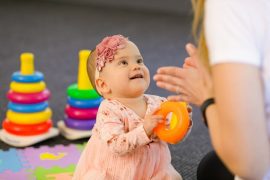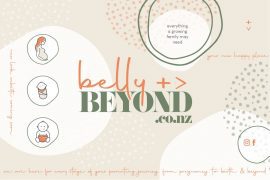By Nelle Donaldson
A couple of years ago, over thirteen thousand parents on babycenter.com voted in response to the question, “What do you think is the most important value for kids to learn?” The choices were a) Empathy, b) Respect, c) Generosity, d) Responsibility or e) Honesty. Overwhelmingly, respect won the most votes-about twice as many as any of the other options. There was a roughly equal split between empathy, responsibility and honesty. Generosity walked away with a mere 4% of the vote, which gives my heart a dull cramp.
Certainly, respect is a popular notion, but one that is far too easily misconstrued to earn my vote. Here’s my plug for empathy:
Simon Baron-Cohen studies the science of empathy as a way of exploring the roots of evil and looking for ways to support human goodness (and, yes, he is that Borat guy’s cousin). According to Baron-Cohen, however, “the concept of evil is unhelpful and unscientific” because to say evil is the absence of good and, therefore, to say someone is evil because they did something that was not good, is an example of circular thinking. In contrast, he argues, the concept of empathy is scientifically useful: it is measurable and can be studied.
Baron-Cohen describes two forms of empathy: cognitive and affective. Cognitive empathy is what is also known as compassion: the ability to imagine oneself in someone else’s shoes. Affective empathy is the drive to respond with appropriate emotion to the experience of another.
Understanding empathy:
- Baron-Cohen theorises that psychopaths are normal in terms of cognitive empathy but are outliers in terms of low affective empathy.
- People with autism, on the other hand, are upset by the distress of others, but have difficulty understanding what other people are going through-that is, people with ASD have normal affective empathy, yet are lacking in cognitive empathy.
- Bullies, contrary to popular belief, have perfectly high self-esteem. What people who engage in bullying behaviour are lacking is self-compassion, according to Dr. Kristin Neff. In her words, they lack a vision of their own “suffering, failure and imperfection [as] a part of the shared human experience.” They don’t apply cognitive empathy to themselves.
- Being self-pitiful involves the inability to accept personal failure as a part of learning and a part of life. Pity involves a) awareness of the suffering of others, b) a choice to acknowledge that suffering, c) response with the desire to help or at least offer kindness. Cognitive empathy, however, requires step d): acceptance that personal failure is a part of human fallibility, to which none are immune.
Empathy is a skill that equally offers acceptance to oneself and others, thereby increasing resilience on both the personal and societal level.
In his 2011 book, The Science of Evil: On Empathy and the Origins of Cruelty, Baron-Cohen seeks to define what factors, socially and biologically, lead a person to temporary or long-term loss of empathy.











